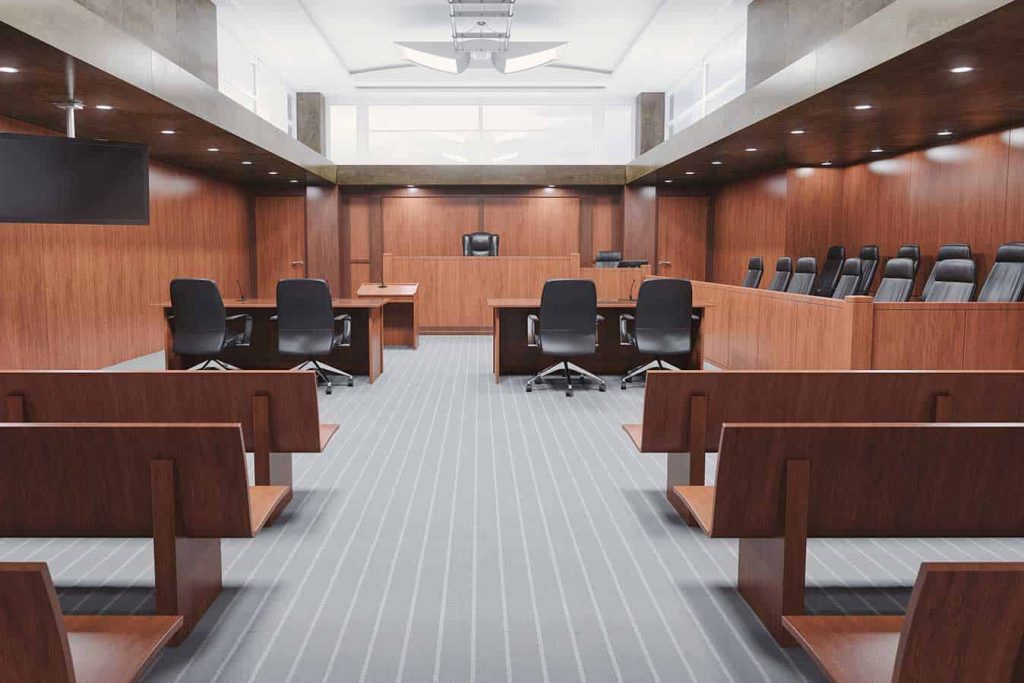In September, Prime Minister Scott Morrison announced the federal government would establish a Royal Commission into Aged Care Quality and Safety to examine the crisis facing the sector.
It officially began in October when Governor-General Peter Cosgrove released a document titled ‘Letters Patent’, which formally appointed the Royal Commissioners and outlined the Commission’s terms of reference.
A website was also launched agedcare.royalcommission.gov.au providing information about the work of the Royal Commission and how people can make submissions and find out when and where hearings will be held.

The role of a Royal Commission
A Royal Commission is an administrative body established by the current government and while not a court holds some similar powers.
Its task is to produce a report and make recommendations.
Royal Commissions make recommendations based on their terms of reference ranging from major policy proposals for the government to recommending criminal proceedings against corporations or individuals.
The Commissioners investigating aged care are required to provide an interim report by 31 October 2019 and a final report by 30 April 2020.
What the Royal Commission will investigate
The Royal Commission into Aged Care Quality and Safety will examine:
- The quality of aged care services provided to Australians, including the level of substandard care provided, prevalence of abuse and systemic failures, and actions that must be taken;
- How to best deliver aged care services to people with disabilities living in aged care facilities, as well the increasing number of Australians living with dementia;
- Future challenges and opportunities for delivering accessible, affordable and high quality aged care services in Australia;
- What the Australian government, aged care industry, Australian families and wider community can do to strengthen the sector and ensure high quality and safe services;
- How to guarantee aged care services are person-centred, with a focus on allowing people to exercise greater choice, control and independence in relation to their care, as well as improving engagement with families and carers regarding care delivery; and
- Innovative models of care, increased use of technology and investment in the aged care workforce and capital infrastructure.
The Royal Commission will consider
- All Commonwealth-funded aged care services;
- All aspects of the quality and safety of aged care services, including dignity, choice and control, clinical care, medication management, mental health, personal care, nutrition, positive behaviour supports to reduce or eliminate the use of restrictive practices, end of life care, and governance and management support systems;
- The critical role the aged care workforce plays in delivering high quality, safe, person-centred care and the need to engage families, carers and others;
- The diversity among older Australians and barriers they face in accessing and receiving high quality aged care services, taking into account increasing chronic and complex conditions; and
- Findings and recommendations of past relevant reports and inquiries.
What powers does the Royal Commission have?
The Royal Commission holds several powers and the ANMF suggests members working in aged care understand what it can do.
The Royal Commission has the power to:
- Summon witnesses to give evidence and produce documents;
- Request a person give information, or a statement, in writing; and
- Apply for search warrants.

What should I do if I receive a summons from the Royal Commission?
A summons or notice may ask you to give evidence, make a statement or provide documents or other relevant information to the Royal Commission.
Keep in mind that the Royal Commission is a legal proceeding and there can be serious legal consequences for not complying with a notice or summons.
Consequences can be as serious as a fine or imposing a prison sentence.
If you receive a summons or notice from the Royal Commission, the ANMF strongly advises you to contact your state branch or the federal office to explain the nature of the document you have received, including whether it requires you to maintain confidentiality.
Your union office will be able to give you initial advice and if necessary referral to a legal representative.
A lawyer will be able to advise members about their legal rights and obligations in relation to the summons and if it requires evidence in person, and answer any questions about the process.
Members should be mindful not to discuss any evidence they have with other people, even close friends or colleagues, as they may also be required to give evidence.
What happens if I receive a search warrant?
The Royal Commission has the power to issue search warrants against individuals and organisations.
This could involve searching for documents, computer records, digital data or any other thing relevant to the Commission.
The ANMF considers it is unlikely individual members will be subject to a search warrant.
In the event of this happening, again, the first thing to do is contact the ANMF for urgent advice.
It is more likely that employers will be the subject of a search warrant.
As an employee, it is possible you will be issued with a search warrant on behalf of your employer.
In this case, members should notify their employer or supervisor immediately and subject to any lawful direction by them, should not to be required to have more involvement in the matter.
Am I protected if asked to be a witness at the Royal Commission?
It is a criminal offence for an employer to dismiss an employee, or prejudice an employee in their employment, for on account of the employee having appeared as a witness or given evidence or information to the Royal Commission, following a notice or summons.
Similarly, it is a criminal offence for any person to use, cause or inflict violence, punishment, damage, loss or disadvantage to another person for or on account of them having appeared as a witness or given evidence or information to the Royal Commission.
If members are required to participate in the Royal Commission process and believe their employer is treating them adversely because of it, they should contact the ANMF immediately for advice.
Can I make a voluntary statement to the Royal Commission?
Individuals can make submissions or provide information to the Royal Commission in a personal capacity.
However, before doing so, it would be advisable to get advice to ensure any potential legal risks are fully understood, including how your employment may be affected.
For example, the protections referred to above may not apply to a voluntary participant.
Again, contact your union office if you are considering making a personal response to the Royal Commission.
Can I express my views publicly about the Royal Commission?
The ANMF recommends members exercise caution if they speak publicly about the Royal Commission, particularly on social media.
It is a criminal offence for anyone to intentionally insult or disturb the Royal Commission, interrupt its proceedings, use any insulting language towards the Royal Commission, or use words that are false and defamatory of the Royal Commission.
For example, publicly claiming that the Royal Commission or one of its Commissioners is corrupt may constitute a serious criminal offence.
Further information
The Royal Commission gives the ANMF and its members a valuable opportunity to shine a light on the crisis facing the aged care sector.
Chronic understaffing in residential aged care facilities means nurses are run off their feet, with an ever-dwindling numbers of nurses struggling to provide safe and quality care to vulnerable elderly residents.
Workloads have risen to dangerously high levels despite nurses being paid significantly less than they deserve.
Disappointingly, some aged care providers are posting massive profits, with the top six for-profit companies raking in over $2 billion in taxpayer subsidies.
However, this is not flowing through to underpaid nurses and carers working in aged care.
If you would like to get involved in the ANMF’s aged care ratios campaign visit http://timeforruby.anmf.org.au/ or https://www.facebook.com/MoreStaffForAgedCare/








